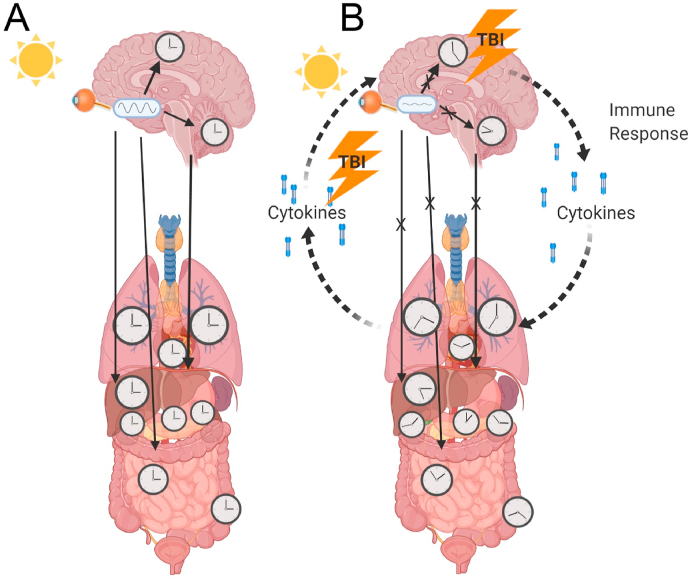Traumatic brain injury (TBI) is a complex and costly worldwide phenomenon that can lead to many negative health outcomes including disrupted circadian function. There is a bidirectional relationship between the immune system and the circadian system, with mammalian coordination of physiological activities being controlled by the primary circadian pacemaker in the suprachiasmatic nucleus (SCN) of the hypothalamus. The SCN receives light information from the external environment and in turn synchronizes rhythms throughout the brain and body. The SCN is capable of endogenous self-sustained oscillatory activity through an intricate clock gene negative feedback loop. Following TBI, the response of the immune system can become prolonged and pathophysiological. This detrimental response not only occurs in the brain, but also within the periphery, where a leaky blood brain barrier can permit further infiltration of immune and inflammatory factors. The prolonged and pathological immune response that follows TBI can have deleterious effects on clock gene cycling and circadian function not only in the SCN, but also in other rhythmic areas throughout the body. This could bring about a state of circadian desynchrony where different rhythmic structures are no longer working together to promote optimal physiological function. There are many parallels between the negative symptomology associated with circadian desynchrony and TBI. This review discusses the significant contributions of an immune-disrupted circadian system on the negative symptomology following TBI. The implications of TBI symptomology as a disorder of circadian desynchrony are discussed.



